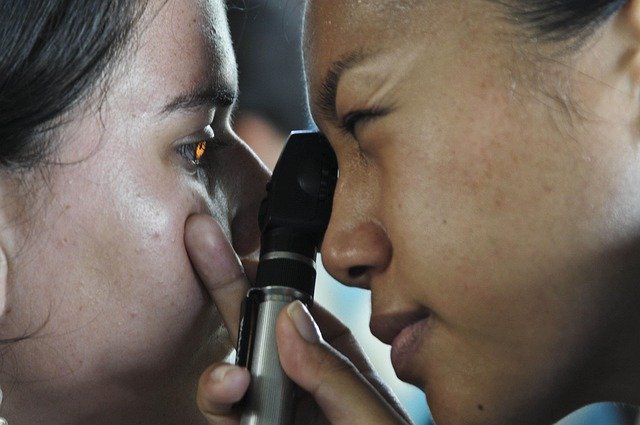What Is Crohn’s Disease? Everything You Need to Know in 2025
Crohn’s disease is a chronic inflammatory condition of the gastrointestinal tract that affects millions worldwide — and cases are rising. In 2025, new research and treatment options are changing how the disease is diagnosed, managed, and lived with. Find out what causes Crohn’s, who’s at risk, and how early action can improve outcomes.

What is Crohn’s disease?
Crohn’s disease is a type of inflammatory bowel disease (IBD) that can affect any part of the gastrointestinal tract, from the mouth to the anus. It is characterized by inflammation that can penetrate deep into the layers of the bowel wall. This chronic condition causes persistent inflammation, leading to a range of symptoms that can significantly impact a person’s quality of life. While the exact cause remains unknown, researchers believe it results from a complex interaction between genetic, environmental, and immune system factors.
What are the symptoms of Crohn’s disease?
The symptoms of Crohn’s disease can vary widely from person to person and may change over time. Common symptoms include:
-
Persistent diarrhea
-
Abdominal pain and cramping
-
Fatigue
-
Unintended weight loss
-
Blood in the stool
-
Reduced appetite
-
Fever
Some individuals may also experience symptoms outside the digestive tract, such as joint pain, skin problems, or eye inflammation. The severity and frequency of these symptoms can fluctuate, with periods of remission followed by flare-ups.
What are the complications of Crohn’s disease?
Crohn’s disease can lead to various complications if left untreated or poorly managed. Some potential complications include:
-
Intestinal strictures: Narrowing of the intestines due to inflammation and scarring
-
Fistulas: Abnormal connections between different parts of the intestine or surrounding organs
-
Abscesses: Pockets of pus that can form in the abdomen or around the anus
-
Malnutrition: Difficulty absorbing nutrients due to inflammation or reduced appetite
-
Increased risk of colorectal cancer
-
Anemia: Due to chronic blood loss or malabsorption of nutrients
-
Osteoporosis: Weakening of bones due to malabsorption of calcium and vitamin D
Early diagnosis and proper treatment can help prevent or minimize these complications, highlighting the importance of seeking medical attention if you suspect you have Crohn’s disease.
How is Crohn’s disease diagnosed?
Diagnosing Crohn’s disease often involves a combination of tests and procedures, as there is no single definitive test. The diagnostic process may include:
-
Medical history and physical examination
-
Blood tests to check for inflammation markers and anemia
-
Stool tests to rule out infections and check for inflammation
-
Imaging studies such as CT scans or MRI to assess the extent of inflammation
-
Endoscopy procedures like colonoscopy or upper endoscopy to visualize the digestive tract
-
Biopsies of affected tissue for microscopic examination
In 2025, advancements in diagnostic techniques, such as improved imaging technologies and genetic testing, are helping to provide more accurate and earlier diagnoses of Crohn’s disease.
What are the treatment options for Crohn’s disease?
Treatment for Crohn’s disease aims to reduce inflammation, manage symptoms, and prevent complications. The approach is typically personalized based on the severity and location of the disease. Common treatment options include:
-
Medications:
-
Anti-inflammatory drugs (e.g., corticosteroids, aminosalicylates)
-
Immunosuppressants
-
Biologic therapies
-
Antibiotics
-
-
Nutritional therapy:
-
Specialized diets
-
Nutritional supplements
-
-
Surgery:
- For severe cases or complications
-
Lifestyle modifications:
-
Stress management
-
Dietary adjustments
-
Regular exercise
-
-
Emerging therapies:
-
Stem cell transplants
-
Microbiome-based treatments
-
In 2025, personalized medicine approaches are becoming more prevalent, with treatment plans tailored to an individual’s genetic profile and disease characteristics.
| Treatment Approach | Provider | Key Features |
|---|---|---|
| Conventional Medications | Gastroenterology clinics | Wide availability, established efficacy |
| Biologic Therapies | Specialized IBD centers | Targeted treatment, potentially higher efficacy |
| Nutritional Therapy | Registered dietitians | Non-invasive, supportive of overall health |
| Surgical Interventions | Colorectal surgeons | For severe cases or complications |
| Emerging Therapies | Research hospitals | Cutting-edge treatments, clinical trials |
Prices, rates, or cost estimates mentioned in this article are based on the latest available information but may change over time. Independent research is advised before making financial decisions.
Living with Crohn’s disease in 2025 presents both challenges and opportunities. While the condition remains chronic and can significantly impact quality of life, advancements in treatment options and management strategies offer hope for better outcomes. Early diagnosis, personalized treatment plans, and a comprehensive approach to care are key to managing Crohn’s disease effectively. As research continues to uncover new insights into the causes and mechanisms of the disease, individuals with Crohn’s can look forward to increasingly targeted and effective treatments in the future.
This article is for informational purposes only and should not be considered medical advice. Please consult a qualified healthcare professional for personalized guidance and treatment.




